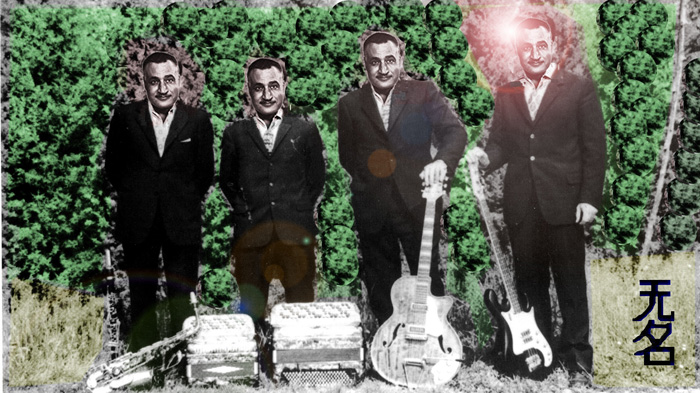The death of the author

“Wu Ming” is mandarine for “without name”, “anonymous” or “five people” and is the name of an italian writer collective from Bologna
They call themselve “a band of novelist” or a “mysterious collective of guerrillla novelists from Italy”. But who are they? The members of Wu Ming call themselves “Wu Ming 1”, “Wu Ming 2”, “Wu Ming 3”, “Wu Ming 4”, “Wu Ming 5”, but their real identities are not secret though:
- Roberto Bui (Wu Ming 1)
- Giovanni Cattabriga (Wu Ming 2)
- Luca Di Meo (Wu Ming 3 – He left the group in the spring of 2008)
- Federico Guglielmi (Wu Ming 4) [Not to be confused with the Italian music journalist of the same name]
- Riccardo Pedrini (Wu Ming 5)
The special about Wu Ming is their idea about authorship. They don´t want to be present in public- Wu Ming principly rejects the machinery of celebrity and wish to demystify the role of authorship.
The autor Wu Ming 1 explained the group’s stance in a interview:
“Once the writer becomes a face… it’s a cannibalistic jumble: that face appears everywhere, almost always out of context. A photo is witness to my absence; it’s a banner of distance and solitude. A photo paralyses me, it freezes my life into an instant, it negates my ability to transform into something else. I become a “character”, a stopgap to hurriedly fill a page layout, an instrument that amplifies banality. On the other hand my voice – with its grain, with its accents, with its imprecise diction, its tonalities, rhythms, pauses and vacillations – is witness to a presence even when I’m not there; it brings me close to people and doesn’t negate my transformative capacity because its presence is dynamic, alive and trembling even when seemingly still.”
Wu Ming does not understand authorship in the tradtional way. The collective believes in copyleft, which is a method of using copyright law to offer the right to distribute copies and modified versions of a work and requiring that the same rights be preserved in modified versions of the work. Therfor copyleft is a general method for marking a creative work as freely available to be modified.
They write on their website: “The partial or total reproduction of this book, in electronic form or otherwise, is consented to for non-commercial purposes, provided that the original copyright notice and this notice are included and the publisher and source are clearly acknowledged.”
The collectives concept of authorship reminds at the poststructuralistic concept of “intertextuality” of Julia Kristeva and Roland Barthes.
 The french-bulgarian philosopher Julia Kristeva arguments that text is always something collective. Because it results from different quotes out of different texts- like a mosaic. Every text which is written is the transformation of yet existing texts and ideas, it is the personal interpretation and construction of what has been read and experienced by the author before and not something completety new.
The french-bulgarian philosopher Julia Kristeva arguments that text is always something collective. Because it results from different quotes out of different texts- like a mosaic. Every text which is written is the transformation of yet existing texts and ideas, it is the personal interpretation and construction of what has been read and experienced by the author before and not something completety new.
The french philosopher Roland Barthes says in his 1968 written essay “The death of the author”, that a text refers always to an other text and is a “tissue of quotes”, which “the reader needs to unravel”. According to Barthes, “the birth of the reader, is the author´s death”, because a text isn´t a closed unit and therefore the author looses his importance.
Gérard Genette, also a french philosopher, speaks of “transtextuality” and subdivides his concept into 5 subcategories (intertextuality, paratextuality, metatextuality, hypertextuality and architextuality). Genette said: “Every text is transtextual. Every text has parts of other texts in it”. “Other parts of texts” could mean quotes as well as structures,
concepts, ideas or relations of the text genre.
Wu Ming has written over 20 books. The collectivley written storys are mostly novels or non-fiction books, which can be downloaded on their website and released under a Creative Commons license. Three of them, the novels Q (ALTAI), ’54 and Manituana are the only books translated into English.

